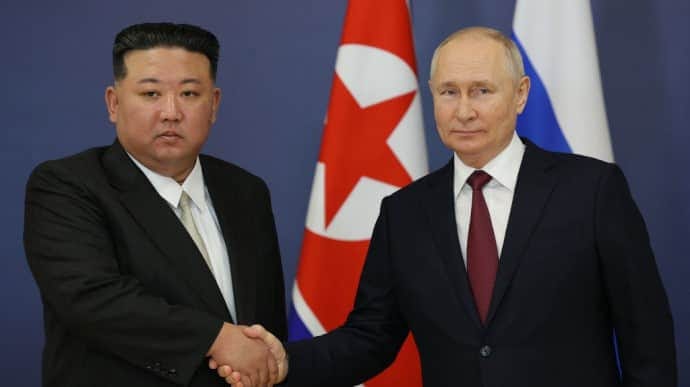Why North Korea & China See A Strategic Advantage In Continuing the Ukraine War
All to advance their own agendas, of course
via Thomas Leckwold, Pegasas Research (excerpt)
United States President Donald Trump and NATO Secretary General Mark Rutte met in Washington, D.C., to announce a new weapons sale to Ukraine to support its ongoing conflict with Russia.
To date, all attempts by the White House to persuade Russia to agree to a ceasefire have failed, prompting the administration to increase military pressure on Russia through this new arms sale.
This sale includes a stipulation allowing European countries to purchase weapons and subsequently transfer them to Ukraine.
Additionally, there is a 50-day deadline for Russia to agree to a ceasefire; otherwise, further sanctions and tariffs will be imposed on Russia and on countries that purchase energy from Russia.
In the current climate, the ceasefire deadline faces significant international opposition, with nations like North Korea and China expressing willingness to assist Russia in resisting the sanctions and continuing the conflict.
The fact that there is international support for Russia to continue the war does not imply the existence of a coalition of countries backing Russia.
Instead, it reflects the interests of nations that seek to prolong the conflict to advance their own agendas.
This does not designate the military-industrial complex or a coalition of globalist-aligned countries as parties interested in resisting an end to the war, although they may have reasons to favor the continuation of the Ukraine War.
This discussion focuses on sovereign nations that, despite having differing motivations, share a common objective of resisting a ceasefire.
Additionally, this evaluation will not include Russia or Ukraine, as they are direct participants in the conflict.
Pegasus Research Substack is a reader-supported publication. To receive new posts and support my work, consider becoming a free or paid subscriber.
North Korea is likely the primary beneficiary of the war and the only international nation directly involved.
Its involvement began in August 2023 to meet Russia’s urgent demand for artillery rounds, with estimates indicating over 6 million rounds of 122 mm and 152 mm types.
Furthermore, North Korea has provided ballistic missiles to Russia, along with crews to launch them into Ukraine.
The specifics of this aid remain unclear; however, considering North Korea's financially strained situation due to sanctions, it is improbable that they would supply this military hardware without expecting something in return.
The Russians, by needing to go to North Korea for ammunition and missiles, demonstrate that they are not in a position to exchange military hardware for these supplies.
In June 2024, …





